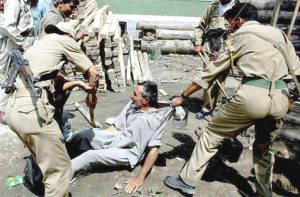
Staff Writer
Delhi has been forced to release prominent human rights campaigner, Khurram Parvez, 2 months after his imprisonment under a controversial security law, which allows for 2 years detention without charge. Parvez, the head of the Asian Federation against Enforced Disappearances, was arrested in September in his home in Srinagar, a day after he was denied the opportunity to board a flight to Switzerland, wherein he was to address the UN’s Human Rights Council. Parvez is a strong campaigner for human rights and equality in Jammu and Kashmir; his organisation was the first to document mass graves in remote valleys in the occupied region, wherein Indian troops have acted with impunity. Parvez, who had been imprisoned before, stated that his imprisonment was tough, but that it was partially a blessing, allowing him to learn about the conditions faced by current day prisoners in India.
Meanwhile, in occupied Kashmir, over 90 have been killed since June in so called clashes with Indian forces, who continue to try to reinforce control and dominance over the population. Delhi is able to continue its occupationist policies without much opposition, even from Muslim majority countries.
Speaking to Radio Islam International, Kavita Srivastava, a human rights officer, and Irshad Mahmoud, director at the Islamabad based Centre for Peace Development and Reforms, both alluded to India’s horrendous and unequal treatment of Muslims and Kashmiris. They both concurred that Delhi was becoming increasingly dictatorial, especially in relation to the protection of minorities, and enforcement of equality, especially amongst Muslims, and in Kashmir. Srivastava also pointed out attempts to storm salah gatherings in an attempt to silence and threaten Muslim worshipers.
Both also concurred about Parvez’s importance and credibility, with Mahmoud arguing that previous jail stints had even seen him lose a leg.
In relation to surgical strikes touted by Delhi, Mahmoud argued that it was a ‘joke’, and that this was most likely an attempt to create a rally around the flag effect, especially since state elections are to be held early in 2022, with Modi’s popularity waning.
On a positive note, Srivastava pointed out to the farmer protests and the government’s being forced to back down as a sign that people were coalescing against the government, and that successes could result were these coalitions large and broad.







0 Comments